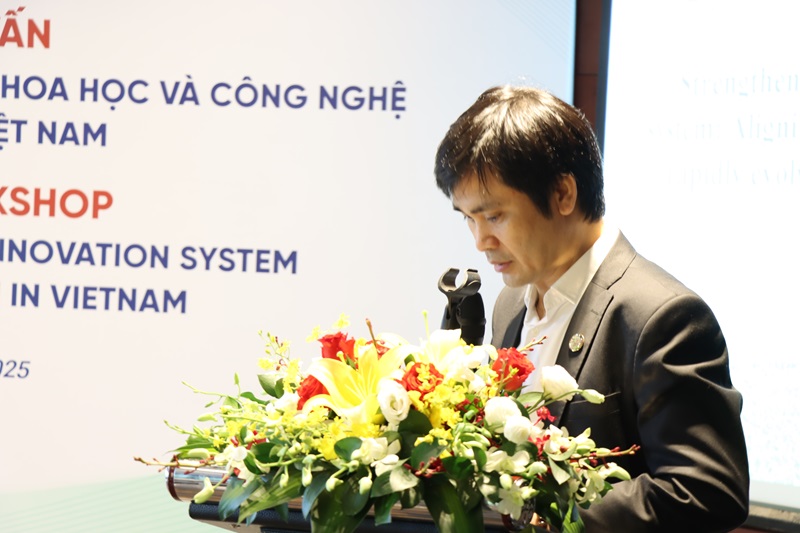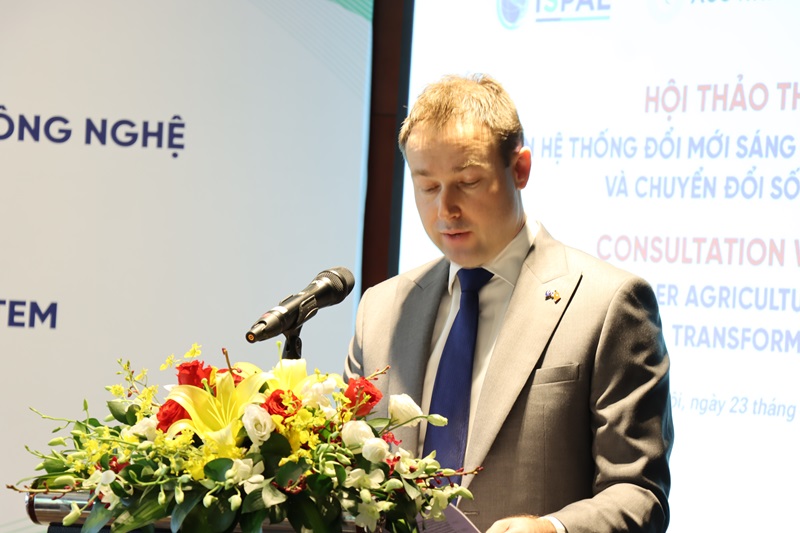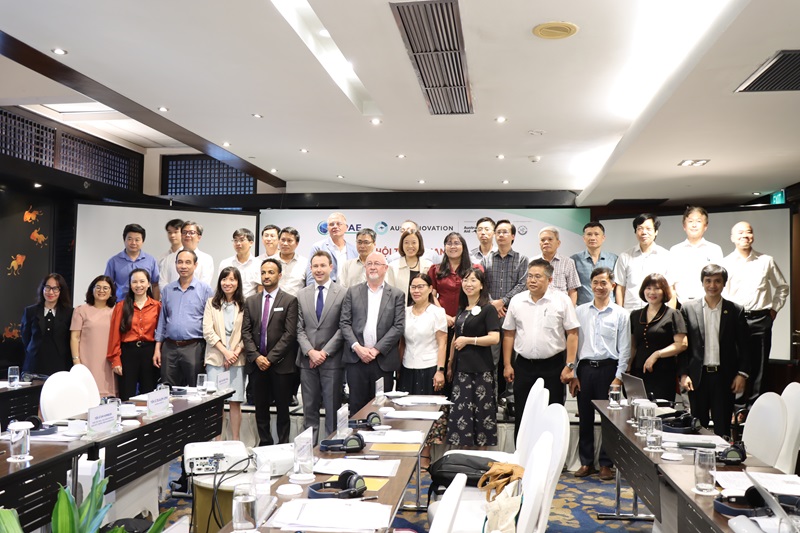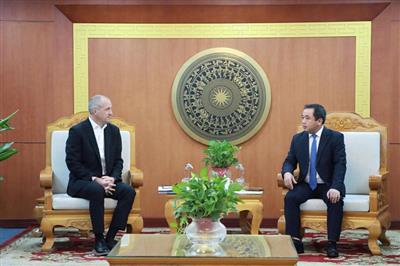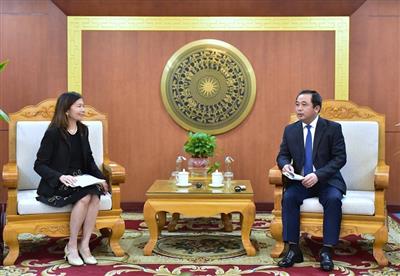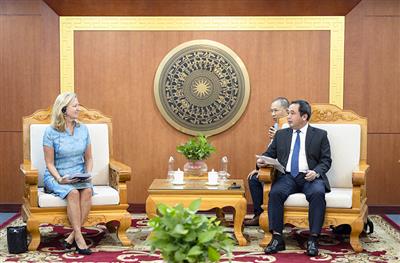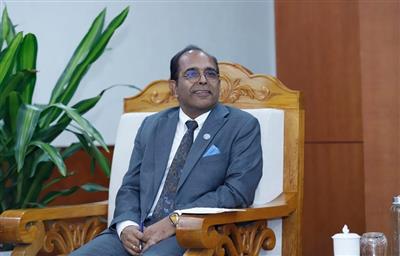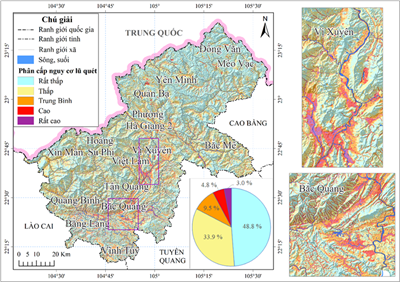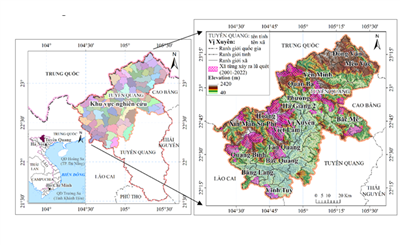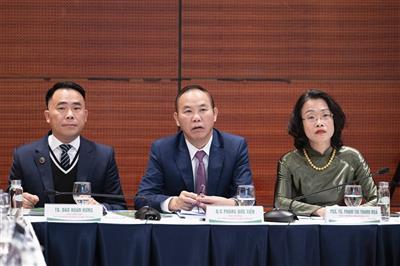
Towards a sustainable and inclusive innovation system in Vietnam’s agriculture
23/05/2025TN&MTOn May 23, in Hanoi, the consultation workshop “Building stronger agriculture innovation system and digital transformation in Vietnam” - jointly organized by the Institute of Policy and Strategy for Agriculture and Environment (ISPAE), the Commonwealth Scientific and Industrial Research Organisation (CSIRO), and the Aus4Innovation program—provided a crucial forum for policymakers, international experts, and representatives from domestic and international organizations to address one of the most pressing challenges facing Vietnam’s agricultural sector: how to build and operate a highly adaptive, effective, and inclusive innovation system.
Innovation: The engine of future agriculture
In his remarks, Dr. Tran Cong Thang, Director of the Institute of Policy and Strategy for Agriculture and Environment (ISPAE), emphasized that Vietnam’s current innovation, science and technology, and digital transformation systems are under increasing pressure to respond to the rapid development of the agriculture and food sectors. “The goal now goes beyond maintaining productivity and ensuring food security. We must also enhance economic, social, and environmental performance. Challenges such as climate change, the need for emissions reduction, and market competitiveness demand systemic innovation,” he stated.
Dr. Tran Cong Thang, Director of the Institute of Policy and Strategy for Agriculture and Environment (ISPAE)
Dr. Tran Cong Thang acknowledged the existing strengths of the system, including an extensive public research network, a dynamic private sector, and strong entrepreneurial spirit. However, he also pointed to structural barriers such as inadequate intellectual property frameworks, weak public–private linkages, and a lack of incentives for innovation actors. The workshop thus aimed to propose specific solutions to strengthen institutions, improve operational capacity, and shape a long-term vision for Vietnam’s agricultural innovation ecosystem.
From global experience to policy recommendations
The workshop was a key event under the "Strengthening Innovation Policy and Practice in Agriculture" project, jointly implemented by CSIRO and Aus4Innovation in partnership with ISPAE. Dr. Kim Wimbush, CSIRO Counsellor at the Australian Embassy in Vietnam and Director of the Aus4Innovation Program, underscored that developing an innovation system for agriculture is not only a national priority for Vietnam but also a cornerstone of bilateral cooperation with Australia.
Dr. Kim Wimbush, CSIRO Counsellor at the Australian Embassy in Vietnam and Director of the Aus4Innovation Program
“The Australian Government is committed to continuing its support for Vietnam’s journey towards an innovative, sustainable, and inclusive agriculture sector. We take pride in the role that Aus4Innovation plays in connecting scientists, policymakers, and businesses to develop effective models of collaboration,” he said.
At the workshop, Dr. Zelalme Lema (CSIRO) presented a functional analysis of Vietnam’s agricultural innovation system, drawing from five case studies to identify key bottlenecks hindering system performance. Professor Andy Hall (CSIRO) offered a global perspective by synthesizing lessons learned from innovation system management in other countries and proposing a flexible approach tailored to Vietnam’s context.
Participants also discussed the need to improve institutional mechanisms to foster public–private collaboration, reform science and technology financing frameworks, and accelerate digital transformation to support more effective implementation of innovation initiatives
One of the workshop’s key takeaways was the recognition that new functions should be integrated into existing structures, rather than replacing traditional components altogether. The innovation system should pursue not only economic outcomes, but also social adaptability, equity, and environmental sustainability. Participants also discussed the need to improve institutional mechanisms to foster public–private collaboration, reform science and technology financing frameworks, and accelerate digital transformation to support more effective implementation of innovation initiatives.
The workshop took place as Vietnam embarks on a major administrative reform, merging the governance structures of agriculture and environment into the new Ministry of Agriculture and Environment (MAE). According to Dr. Kim Wimbush, this development signals Vietnam’s strategic move to integrate agricultural development with environmental protection, enhancing system resilience amid a rapidly evolving global landscape shaped by environmental, technological, and social change.
By convening diverse perspectives, the workshop not only helped build a shared vision for the future of agricultural innovation in Vietnam, but also marked a concrete step toward fulfilling the country’s commitment to sustainable and inclusive agricultural development.
Ngoc Huyen


